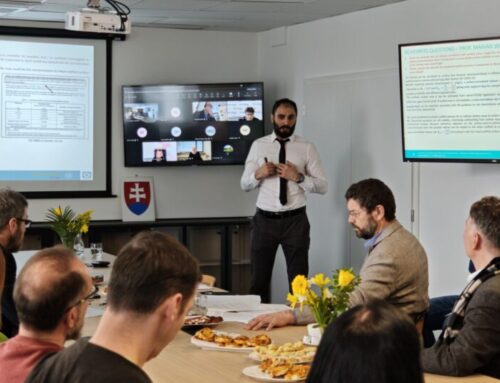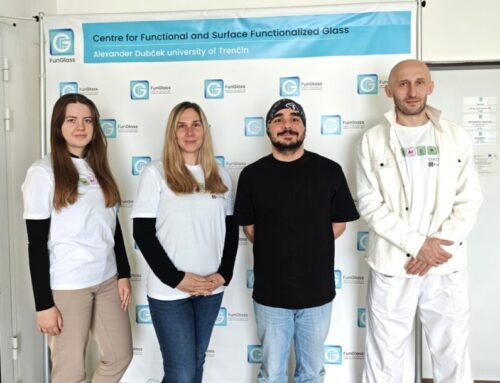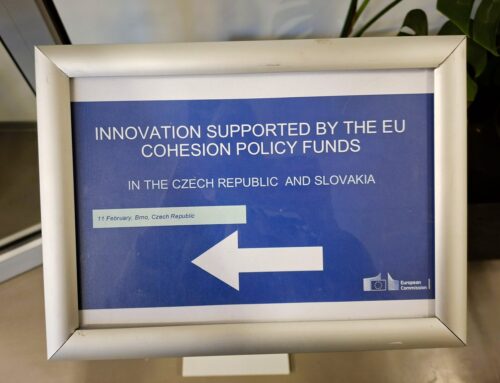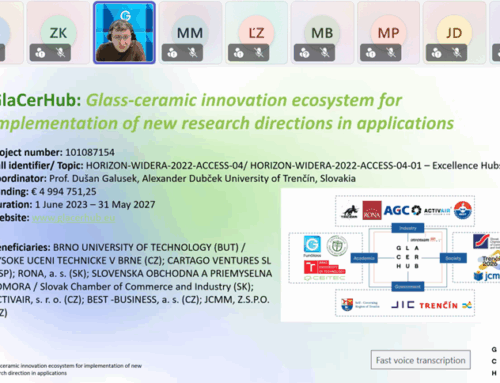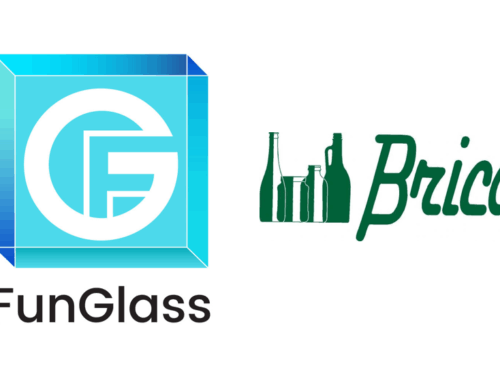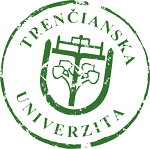Turning Waste into Function: Porous Membranes from Alkali-Activated Borosilicate Glass for Copper Removal in Acidic Wastewater
We are pleased to announce the publication of our latest research article, “Development of porous membranes by alkali activation of borosilicate glass: Effect of wastewater acidity on copper adsorption”, in Developments in the Built Environment (Impact Factor: 8.2).
Read the article here
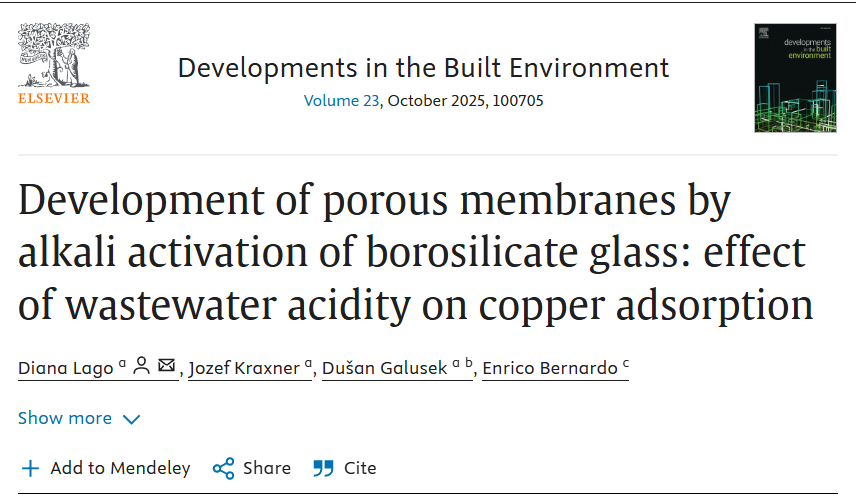
This achievement is the result of a close collaboration between Dr. Diana Lago, Dr. Jozef Kraxner, and Prof. Dušan Galusek from FunGlass, and Prof. Enrico Bernardo from the University of Padova.
The study presents a sustainable approach to converting Duran glass—traditionally considered unrecyclable—into high-value, functional membranes for environmental remediation. A key finding was the enhanced formation of stable gel phases, made possible by using ultra-fine glass powders. The increased surface area facilitated greater glass dissolution and robust gel development, crucial for performance in extreme conditions such as boiling and acidic environments.
Through the use of diluted alkaline solutions and tailored post-treatments, we successfully modified the surface properties of the membranes, significantly improving copper adsorption even in highly acidic conditions (pH = 2).
These results highlight not only the potential of alkali-activated borosilicate glass membranes for real-world environmental applications but also align with circular economy principles by turning industrial glass waste into high-performance functional materials.


